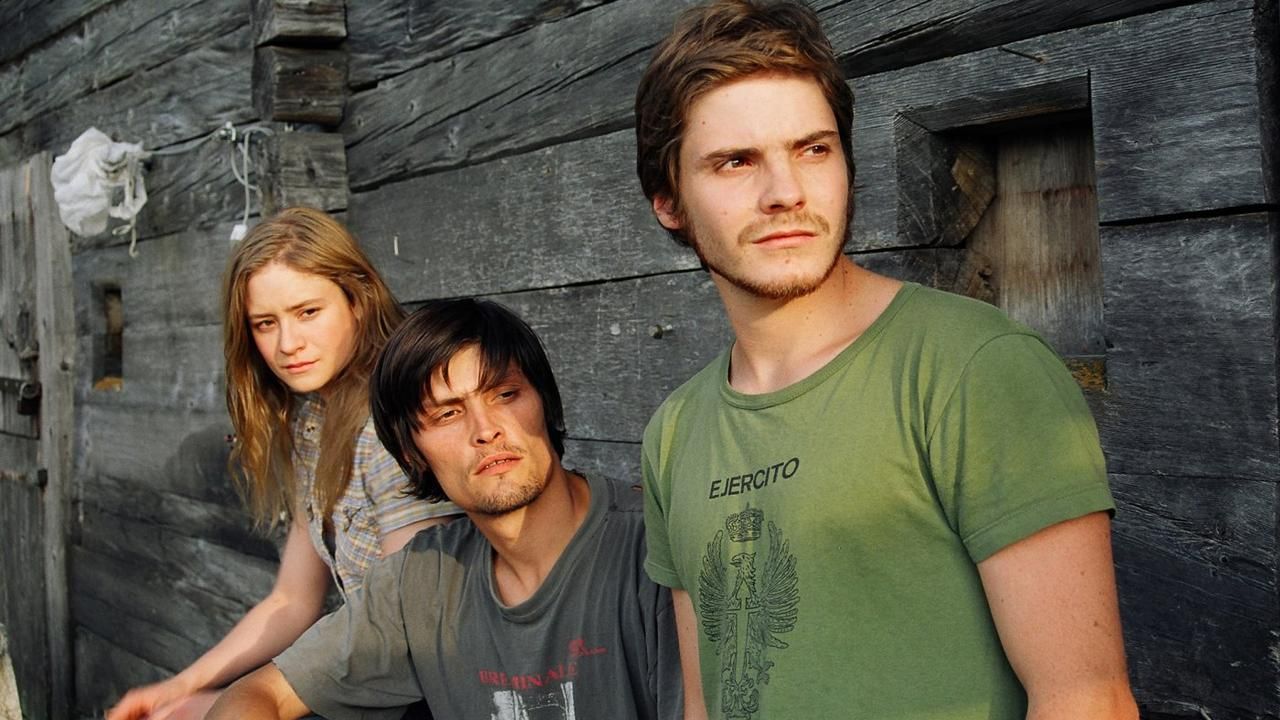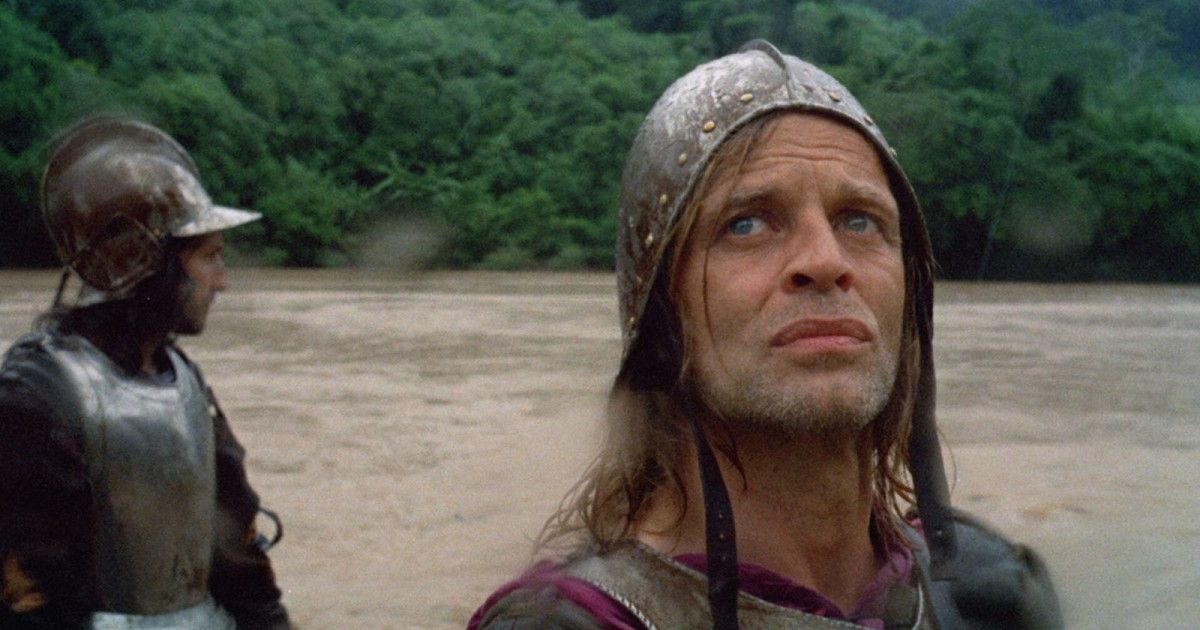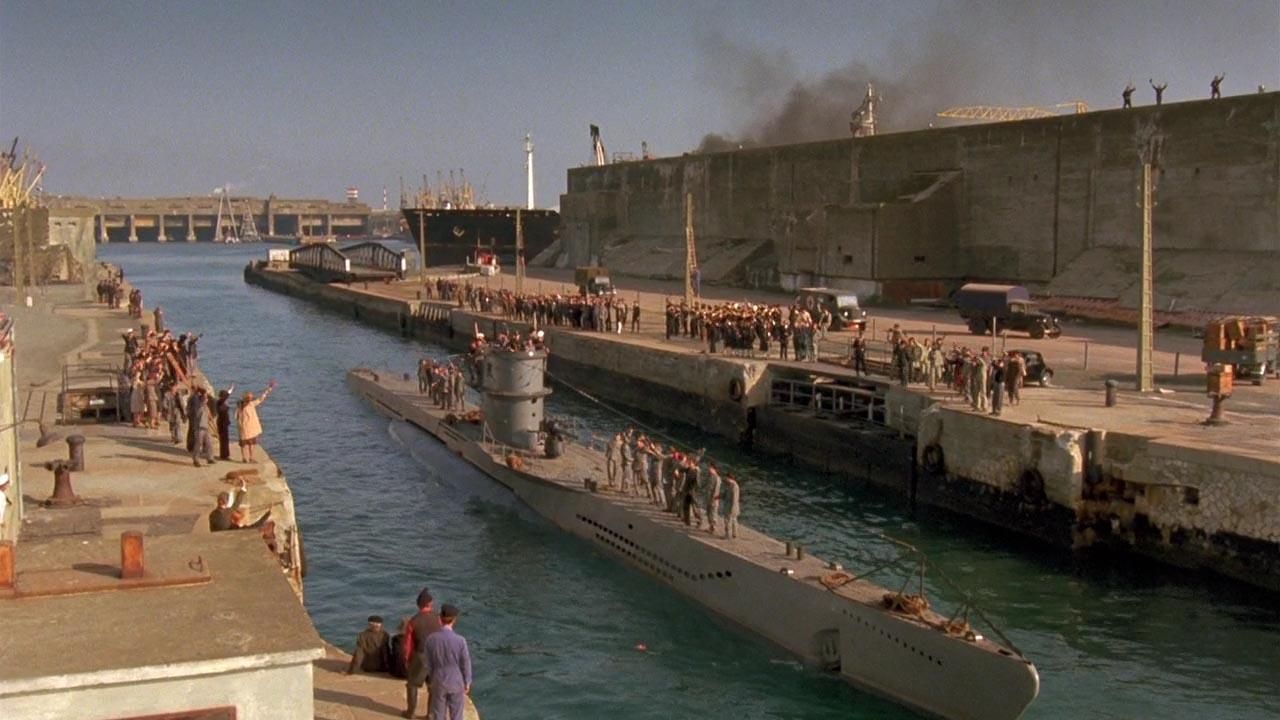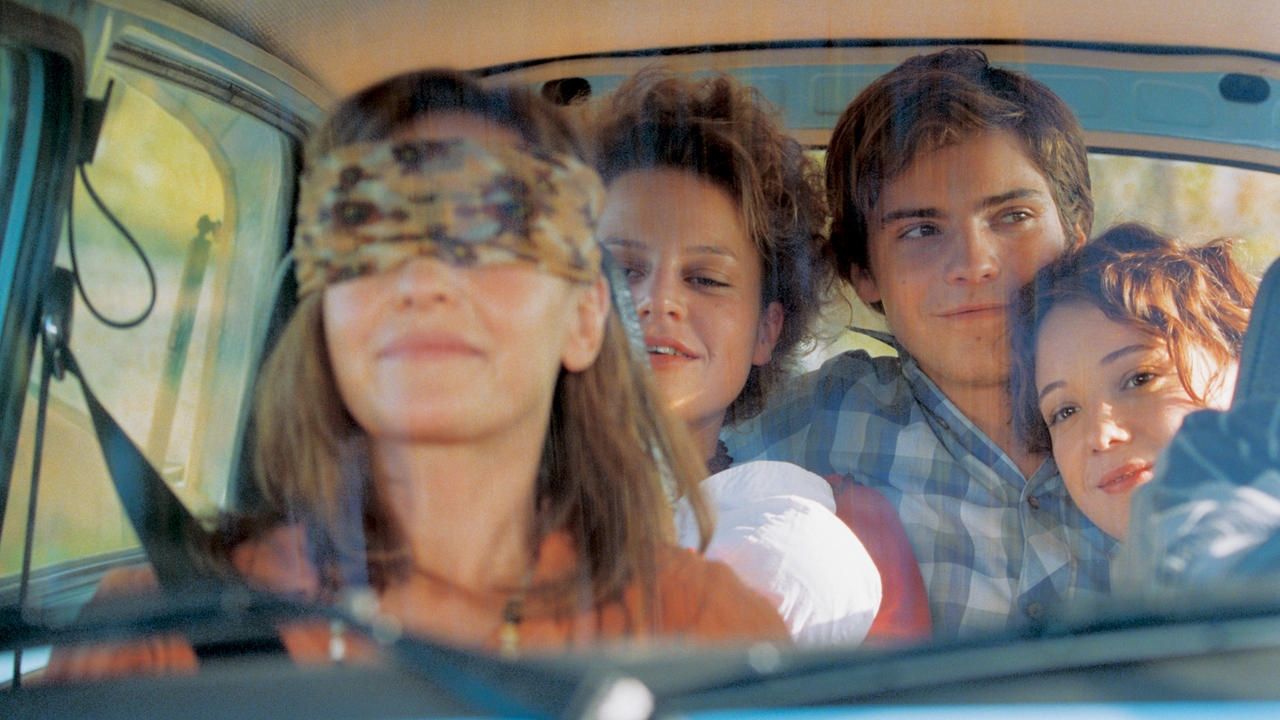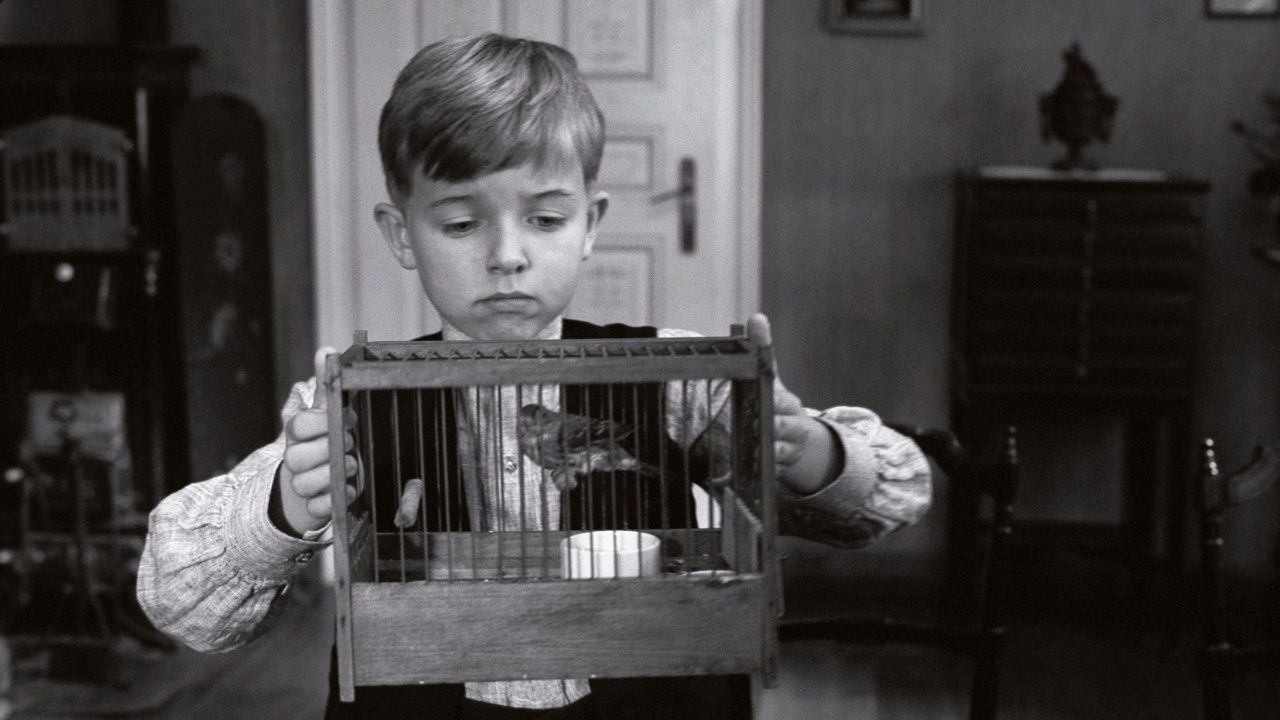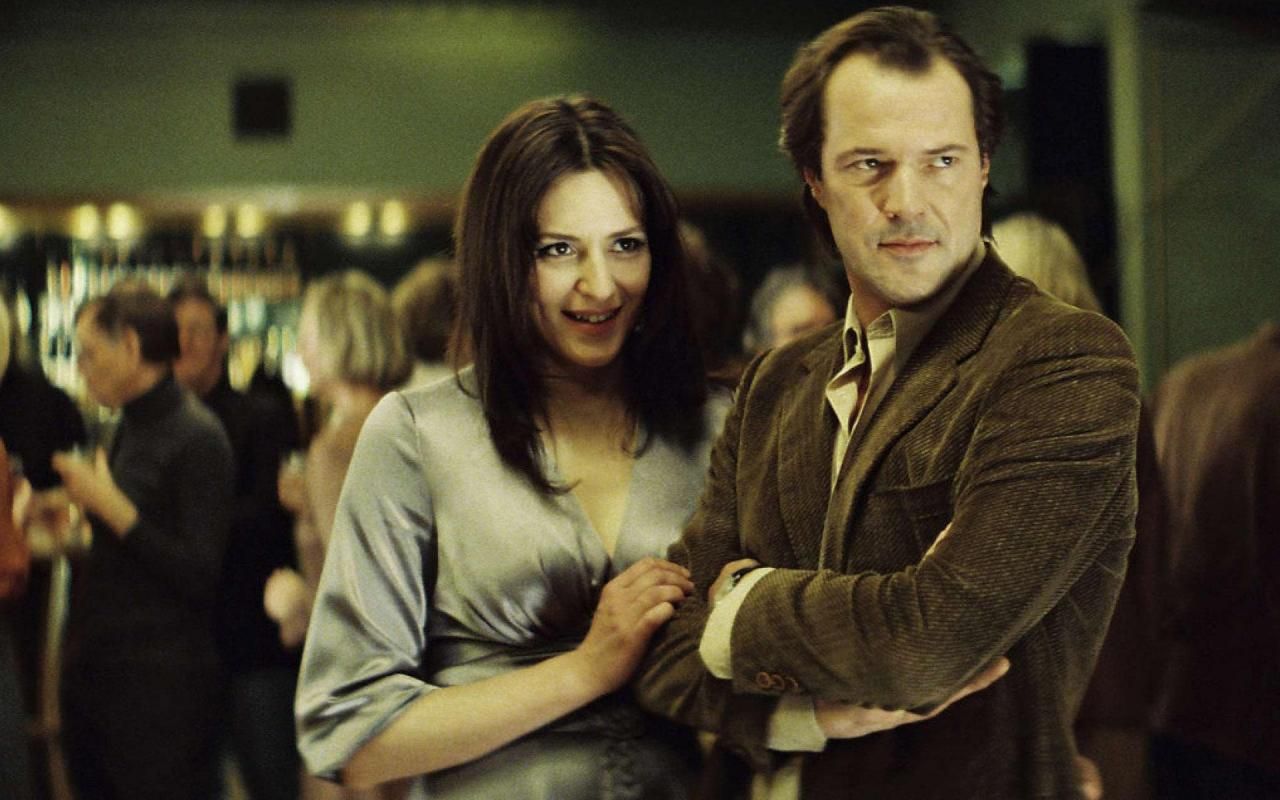Think about the characteristics of a great movie. What made it stand out in your mind? Is it the plot, the dialogue, the story, the special effects, the set, or the actors? For many films, it’s a combination of several things that creates memorable and iconic cinema. Quality is universal. Yet, around the world, each culture has different perspectives when it comes to making films.
In school, we learn about German history and the country's historic events, especially during its chaotic 20th century-- World War I, the rise and fall of Hitler, World War II, the Cold War, and the collapse of the Berlin Wall. All these happenings are essential to German history in making it the country it is today, but also integral in shaping its cinema, with many great German films specifically focused on these historical moments. However, these German events didn’t just affect the nation; they shook nations worldwide. That’s why there have been so many great cinematic works centered around Germany's role in shaping the 20th century. History aside, German movies are thought-provoking and reflect its culture, giving viewers glimpses into what life is and was like there. These are just a few of the many masterpieces of German cinema. Spoilers ahead.
6 Aguirre, The Wrath of God
Aguirre, The Wrath of God is considered to be one of the best films made by German director Werner Herzog and has earned him much critical acclaim. It explores the destruction and greed of chasing unreachable wealth. Embark on a maddening ride as you join Spanish soldier Lope de Aguirre (played by Klaus Kinski in one of his many iconic and infamous roles with the director) in his quest to find the lost city of gold, El Dorado. Aguirre is one of the many soldiers and enslaved people who march down from the newly conquered Inca Empire in the Andes mountains into the jungles to search for El Dorado. He is chosen alongside other men to scout ahead and is given one week to return or else be considered lost for good. However, along the way, the crew experiences many hardships, including mutiny (led by Aguirre), attacks from unseen assailants, and unruly monkeys. One by one, the crew parishes until Aguirre is the sole survivor. Crazy and alone, the film ends with him proclaiming to monkeys, “I, the Wrath of God, will marry my own daughter, and with her, I will find the purest dynasty the world has ever seen. Together, we shall rule this entire continent. We shall endure. I am the Wrath of God ... who else is with me?” This reference to "the purest dynasty" is one of the most haunting and subtle lines in a German film filled with metaphors about Nazis, fascism, and colonization.
5 Das Boot (The Boat)
Das Boot (The Boat) is a 1981 World War II film based on the bestselling novel and personal experience of Lothar-Günther Buchheim, who spent his own time aboard a U-96 boat. In Wolfgang Petersen's film, the captain and his crew board a German submarine U-96 as they are tasked with patrolling the waters near the Battle of the Atlantic. At first, the U-96 does the hunting, sinking several vessels, and escaping the clutches of a British destroyer ship with only minimal damage. However, as time progresses, the members of the U-96 soon find themselves under attack and must fight for their lives. After many hardships, the crew does return to their destination of La Rochelle, only to meet their fate when Allied planes bomb the area. It’s ironic, that after everything it endured, the U-96 sinks while docked in the harbor of La Rochelle. While it’s important to remember that the Germans were the aggressors in World War II while the Allies were mostly fighting for freedom, Das Boot shows the humanity and vulnerability of every character, most of whom were simply basic soldiers largely unaware of the atrocities being committed on shore. The film is a claustrophobic masterpiece of psychological tension.
4 Goodbye Lenin
How far would you go to build the perfect illusion for a loved one? In East Berlin in 1989, Alex Kerner (Daniel Brühl) lives with his mother, Christiane. Disgusted with the celebration of East Germany’s 40th anniversary, he attends an anti-government demonstration. At the protest, Alex is spotted by his mother, who suffers a heart attack and goes into a coma after witnessing him getting beaten and arrested. Eight months later, Christiane awakens from her coma but, unknown to her, Germany has vastly changed. During that time, Erich Honecker resigned, the Berlin Wall collapsed, and the borders opened, and East Berlin is now a capitalist democracy of sorts. Since Christiane is weak, doctors tell Alex that any extreme shock may cause her to have a fatal heart attack. To prevent that from happening, Alex decides to conceal the changes from his mother by creating fake news broadcasts, packaging new food in old East German jars, and even dressing in his East German clothing. Goodbye Lenin is a great, perfectly scripted tragicomedy that manages to be entertaining and heartwarming but also educational throughout its deep-dive into real (and alternate) German history. It's a uniquely German masterpiece.
3 The Edukators
Imagine going on vacation than coming back and finding your home disturbed and rearranged. In The Edukators (The Educators), three anti-capitalist activists (led by a young, pre-Marvel Daniel Bruhl), Peter, Jan, and Jule make it their mission to “educate” and frighten wealthy, upper-class citizens by breaking into their homes and disrupting their perfect lives. They do this by rearranging furniture and leaving strange notes saying “Die fetten Jahre sind vorbei” (the days of plenty are over) or “Sie haben zu viel Geld” (you have too much money). However, during one of their missions, Jule realizes that she accidentally left her phone behind. When she returns to retrieve it, she finds herself face to face with a wealthy businessman to whom she is in debt. The gang kidnap him and are faced with the decision of what to do next. The film poses interesting questions regarding wealth, class, and what is morally right. The Edukators exists at a culturally specific moment in which the formerly Communist Germany has transitioned into neoliberal capitalism, and many youths were questioning whether the move was worthwhile for anyone but the super-rich one-percent.
2 Das Weiße Band (The White Ribbon)
Das Weiße Band (The White Ribbon) is a black and white 2009 mystery dramatically depicting horrific events surrounding the German Protestant village of Eichwalde. From the outside, this town seems like any other. However, underneath picture-perfect appearances, there is a darkness that resides in Eichwalde. The town pastor leads the children in confirmation classes, scorning them over small offenses, and assigns them to wear ribbons as reminders of the innocence and purity which has fallen from them. Soon, strange and dark events begin happening. The schoolteacher falls off his horse from a wire that was mysteriously tied between two trees, a farmer’s wife dies at the sawmill when faulty floorboards give out, and her mourning husband hangs himself. While these things could be seen as accidents, it’s no accident when the baron’s young son disappears and is found the next morning in the sawmill, beaten and tied up. The film has an ambiguous, open-ended conclusion which has frustrated some but tends to make The White Ribbon even more disturbing in retrospect. It is, like most of Michael Haneke's films, an utterly pessimistic and misanthropic study of the human condition, especially as it focuses on German life at the beginning of the 20th century, when the country's innocence (like the children's) was being shattered in preparation for global war and awful atrocities.
1 Das Leben der Anderen (The Lives of Others)
Nothing is private in Das Leben der Anderen (The Lives of Others). In East Germany in 1984, ranking officer Gerd Wiesler is ordered to spy on famous playwright Georg Dreyman. While Dreyman is out, Wiesler and his guards bug his apartment, then Wiesler waits and listens, hoping to hear something of importance. However, Wiesler soon turns sympathetic to Dreyman and does not report any of his suspicious activity, a decision that later results in his demotion. Dreyman writes and publishes an article accusing the state of concealing the high suicide rates, which infuriates the East German authorities. Sometime later, on 9 November 1989, the Berlin Wall falls and Wiesler leaves his post, inspiring others to do the same. Eventually, Dreyman learns that Wiesler concealed his activity, and dedicates his next book to HGW XX/7, which was Wiesler’s code name. The film is an extremely realistic spy picture, and one of the great films about voyeurism (which is what cinema is all about). It also focuses on the secretive practices and rituals of East German officials in a way which few movies have explored so successfully and with such humanity. The movie never explores why Wiesler risked his career to help Dreyman, but does anyone ever need a reason to do what is righteous? Ultimately, this German film shows how empathy and compassion are the most important things to hold onto when history seems outside of our control and war and ideology run rampant.

